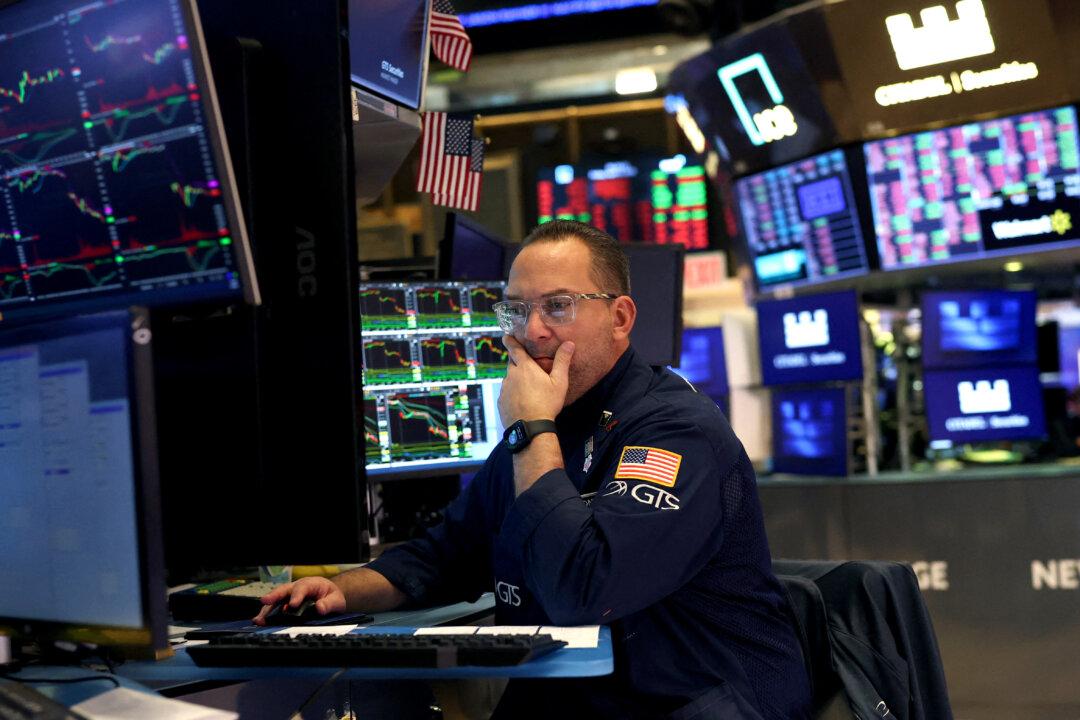U.S. stocks fell for the second consecutive day on Friday after the Trump administration announced a series of global tariffs.
The Dow Jones Industrial Average dropped more than 2,200 points, or 5.5 percent. The blue-chip index registered a weekly loss of 8 percent and is down 10 percent this year.





